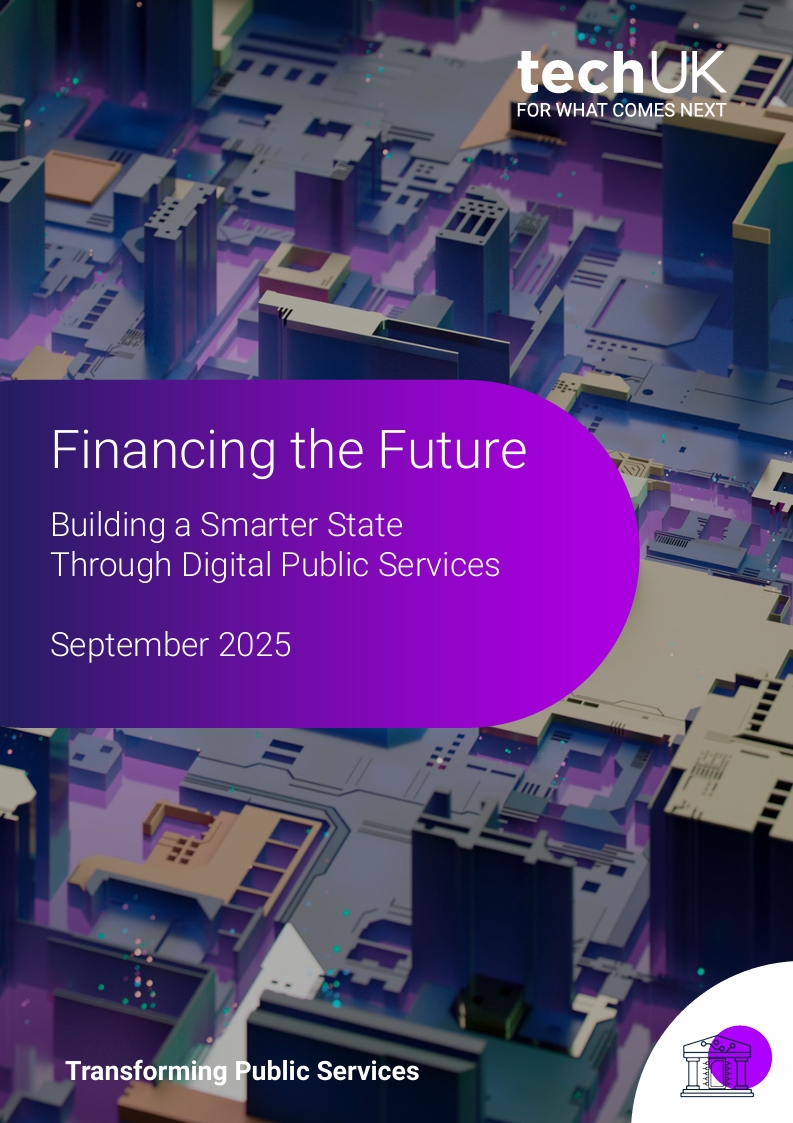Financing the Future - Building a Smarter State Through Digital Public Services
This report - developed by Henham Strategy and techUK, in partnership with its members - makes clear the case for a fundamental shift in approach to procurement processes and funding models for digital procurement.
It presents a strategic assessment of digital procurement across government, informed by literature, stakeholder engagement, and an analysis of relevant case studies. It finds that a flexible, context-sensitive approach is essential to meet the diverse and evolving needs of public service delivery.
This review draws on a combination of case study analysis and extensive stakeholder engagement to provide a comprehensive view of digital procurement practices across both public and private sectors. Specifically, we look at the role of government funding models and payment mechanisms as barriers to innovation and operational efficiency. Through these insights, we have evaluated the strengths and limitations of current approaches and identified opportunities for reform.
Our engagement with industry experts found that inefficiencies embedded within digital procurement have acted as a barrier to achieving greater digitalisation of public services. There was a clear consensus across our engagement that to achieve effective digitalisation of public services the government should take immediate action to 1) refrain from procuring one-off products to solve complex user-needs, 2) make RDEL budgets the go-to funding route for digital procurement, 3) work in strategic partnership with the private sector, and continuing some of the best practice seen in government-industry collaboration, and 4) ensure more test and learn pilots, proof of concepts are encouraged and place more emphasis on demonstration the solution works during procurements processes.
The Government has acknowledged some of the issues associated with current approaches to digital delivery. For example, the Performance Review of Digital Spend outlined the need for a smarter use of RDEL funding within digital procurement. However, structural and cultural barriers continue to inhibit innovation, efficiency, and value for money, meaning more tangible recommendations to improve outcomes are needed. To enable more agile, outcome-driven digital delivery, this review recommends embedding five guiding principles into procurement policy and practice: Flexibility, Collaboration, Competition, Value for Money, and Pro-Innovation. These principles form a coherent framework for improving digital procurement, ensuring it is aligned with user needs, and primed to deliver long-term public value.
To support these principles, the research also outlines a set of overarching policy recommendations. These include reforming funding structures to support service development, enhancing digital and commercial capability across departments, and aligning public procurement practices more closely with proven private sector models. These recommendations are not standalone, but designed to reinforce and operationalise the guiding principles, ensuring they translate into tangible change.
Considering the Government and industry alignment on the inefficiency of digital procurement, and some of the broader recommendations to improve it, now is the time for targeted reform. By adopting a principles-based framework and implementing key reforms, it can unlock efficiencies, reduce delivery risks, and drive innovation, even within existing constraints. This lays the foundation for a more outcome-focused digital procurement system, capable of delivering and supporting long-term transformation.

.webp)

